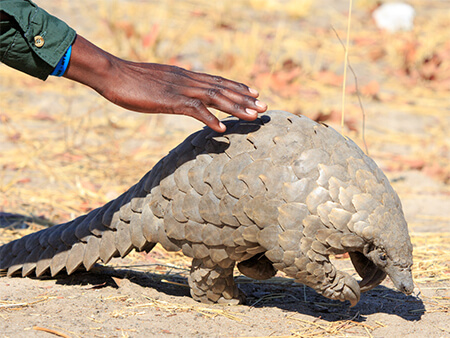About One Health
One Health is a collaborative, transdisciplinary, and multisectoral approach that acknowledges the connection between the health of animals, people and the environment.
On December 1, 2021, United Nation’s agencies’ One Health High-Level Expert Panel (OHHLEP), released a formal definition of One Health.
One Health is an integrated, unifying approach that aims to sustainably balance and optimize the health of people, animals and ecosystems. It recognizes the health of humans, domestic and wild animals, plants, and the wider environment (including ecosystems) are closely linked and inter-dependent. The approach mobilizes multiple sectors, disciplines, and communities at varying levels of society to work together to foster well-being and tackle threats to health and ecosystems, while addressing the collective need for clean water, energy and air, safe and nutritious food, taking action on climate change, and contributing to sustainable development.
The One Health approach recognizes that all sectors must work together to achieve optimal health of animals, the environment, and humans. One Health brings together multiple sectors and disciplines to achieve better public health outcomes. The One Health approach focuses on public health challenges that are accompanied with an ever-changing world in relation to zoonotic diseases, antimicrobial resistance, food safety, and much more.
The One Health approach has been used to improve health outcomes for animals, humans, and the environment, associated with:

Zoonotic Diseases
Rapidly increasing human populations and increased contact with wild and domestic animals – Close contact with animals and their environments may provide an increased opportunity for disease to pass between animals and people, known as zoonotic diseases.

Environmental Changes
Constant environmental changes including climate change and land use – Disruptions in the environment may result in new opportunities for disease spread from animals to humans, or vice versa.

Globalization
Increased globalization, travel and trade – The movement of people and animal products across borders may cause diseases to quickly spread across borders and around the globe.
One Health Framework
In the tradition of Kuhn’s typology of scientific revolutions, One Health represents a paradigm shift in strategic prediction, prevention, and protection against pandemics. The One Health Framework emerged initially at the intersection of academic and professional disciplines of Veterinary Medicine and Public Health and quickly absorbed the Environmental Sciences to create a tripartite entity that continues to evolve as we learn more about the origins and impacts of pandemics such as COVID-19. The One Health Framework focuses energy on the areas of research, education, and practice that lie along the porous boundaries between disciplines in order to prevent and advance the understanding of zoonotic pandemics. The educational aspect of the One Health Framework is of paramount significance for the One Health Workforce Academy.
Competency-based training of the One Health workforce is essential to assure that those entrusted with concurrent protection of the health of humans, animals, and the environment are equipped with appropriate knowledge and skills. The One Health Framework for training and empowerment consists of a set of competencies of various domains that define the common understanding of essential knowledge, behavior, and skills needed to achieve the results within the One Health paradigm. Partners of the One Health Workforce Academy continue to use the One Health Framework to establish core competencies for designing accreditable curricula and credentials for pre-service and in-service trainees, regardless of their discipline of origin.
One Health Competency Framework- Toolkit Manual_Version – II _ August 2022
- “Tripartite and UNEP Support OHHLEP’s Definition of ‘One Health.’” World Health Organization, World Health Organization, 1 Dec. 2021, https://www.who.int/news/item/01-12-2021-tripartite-and-unep-support-ohhlep-s-definition-of-one-health
- Kuhn, T.S., 2012. The structure of scientific revolutions. University of Chicago press. ISBN 9780226458144.
- Amuguni, H., Bikaako, W., Naigaga, I. and Bazeyo, W., 2019. Building a framework for the design and implementation of One Health curricula in East and Central Africa: OHCEAs One Health Training Modules Development Process. One Health, 7.
- Togami, E., Gardy, J.L., Hansen, G.R., Poste, G.H., Rizzo, D.M., Wilson, M.E. and Mazet, J.A.K., 2018. Core competencies in One Health education: what are we missing. NAM Perspectives, National Academy of Medicine, Washington, DC. https://nam.edu/core-competencies-in-one-health-education-what-are-we-missing/
- National Academies of Sciences, Engineering, and Medicine, 2017. Exploring the role of accreditation in enhancing quality and innovation in health professions education: Proceedings of a workshop. National Academies Press. https://www.nap.edu/catalog/23636/exploring-the-role-of-accreditation-in-enhancing-quality-and-innovation-in-health-professions-education
